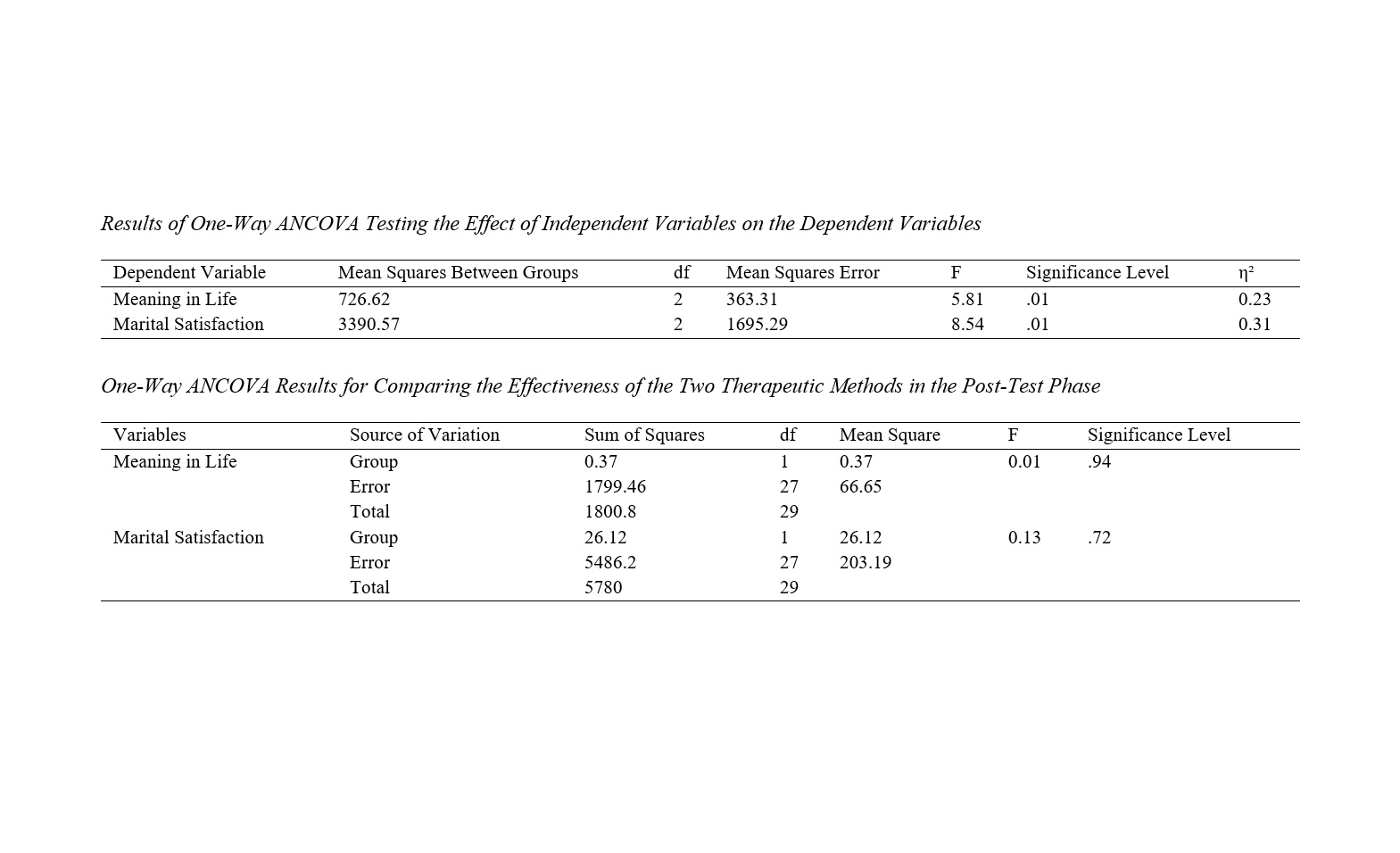Comparison of the Effectiveness of Residential Group Therapy Based on Acceptance and Commitment Therapy (ACT) and Cognitive Behavioral Therapy (CBT) on Meaning in Life and Marital Satisfaction in Couples
Keywords:
Residential group therapy, Acceptance and Commitment Therapy (ACT), Cognitive Behavioral Therapy (CBT), meaning in life, marital satisfactionAbstract
Objective: The aim of this study was to compare the effectiveness of residential group therapy based on Acceptance and Commitment Therapy (ACT) and Cognitive Behavioral Therapy (CBT) on meaning in life and marital satisfaction in couples.
Methods and Materials: This research used a quasi-experimental design with a pre-test, post-test, and control group. The research population consisted of couples who sought counseling at family counseling centers and health houses in Birjand in 2021. From this population, 45 individuals were selected via convenience sampling and were randomly assigned to three groups: control group (15 participants), ACT group (15 participants), and CBT group (15 participants). The intervention sessions for the experimental groups were conducted by the researcher over 18 consecutive weeks, with each session lasting 2 hours. Following the intervention sessions, the Meaning in Life Questionnaire and the Marital Satisfaction Questionnaire were administered as post-tests, and the same questionnaires were administered again three months after the intervention as a follow-up. The results of the three groups were compared at both the post-test and follow-up stages. Statistical methods such as Multivariate Analysis of Variance (MANOVA), given the assumptions for parametric tests, and Analysis of Covariance (ANCOVA) were employed.
Findings: The results indicated no significant difference in the effectiveness of ACT and CBT group therapies in enhancing meaning in life and marital satisfaction. Additionally, comparisons of the mean scores of the experimental groups at the post-test and follow-up stages showed that the effects of the independent variables persisted in the follow-up stage, with no significant differences between the post-test and follow-up stages.
Conclusion: The study found no significant difference between Acceptance and Commitment Therapy (ACT) and Cognitive Behavioral Therapy (CBT) in improving meaning in life and marital satisfaction. Both therapeutic approaches proved effective, highlighting the potential for their application in enhancing psychological well-being and relationship quality among couples.
Downloads

Downloads
Additional Files
Published
Submitted
Revised
Accepted
Issue
Section
License
Copyright (c) 2024 Fatemeh Sadat Sedighi (Author); Tahmoores Aghajani Hashjin (Corresponding Author); Mohsen Jadidi (Author)

This work is licensed under a Creative Commons Attribution-NonCommercial 4.0 International License.
















